I wore the Galaxy Watch Active during my pregnancy, and now I'm a believer
Low blood pressure is a common occurrence in pregnant bodies, and my Galaxy Watch Active helped alert me to a potentially dangerous situation.
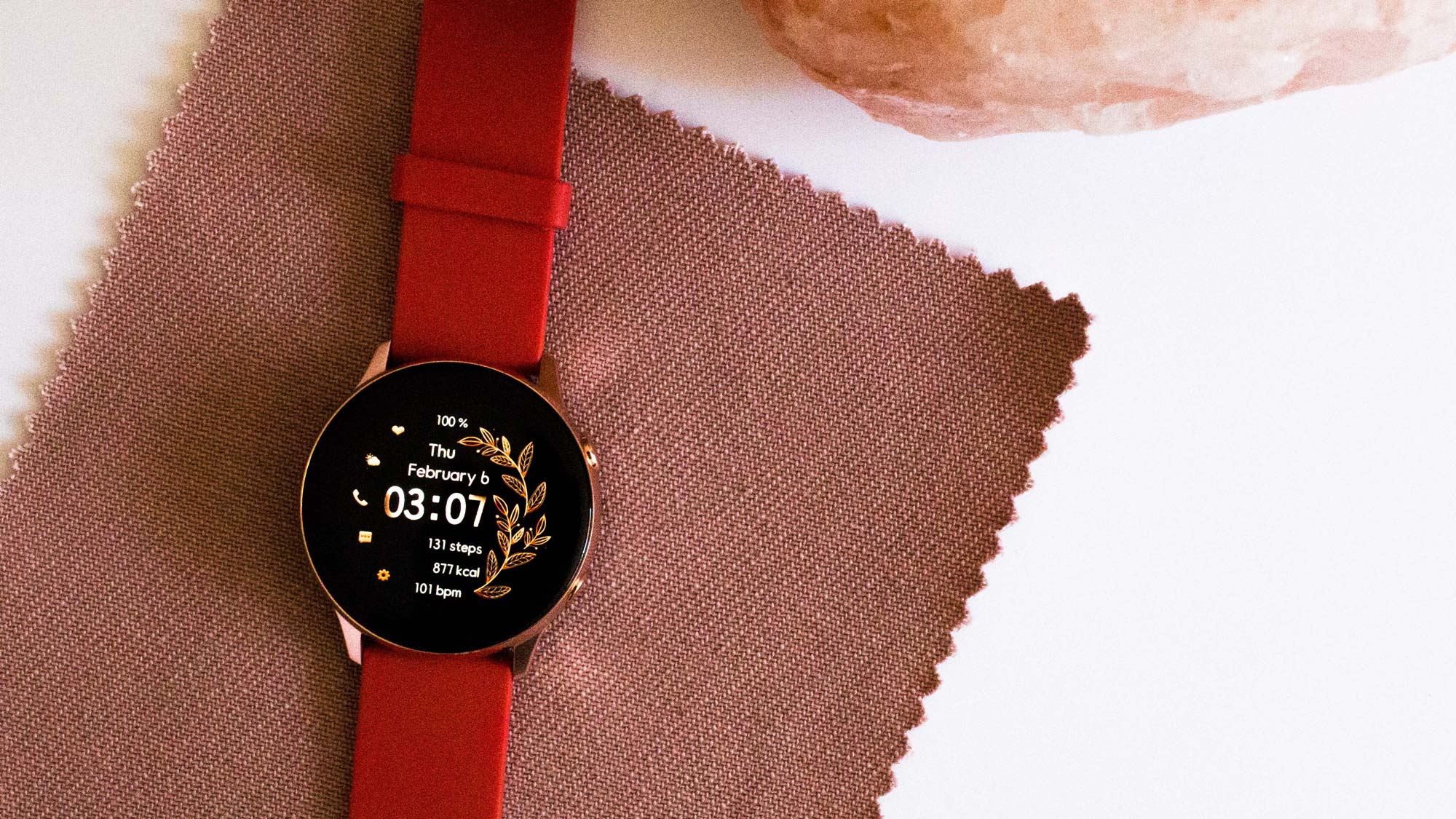
It was somewhere between Orinda and MacArthur station on the BART in San Francisco when I knew something was wrong. If it weren't for my smartwatch, things could have been much worse.
I was 21 weeks pregnant, and although I was barely showing, I had been suffering through weeks of debilitating nausea. My energy levels finally felt stable enough that I wanted a sense of normalcy after spending so much time with my head in the toilet, so I booked a trip to the East Coast. However, while riding on the train to the San Francisco airport, I started feeling lightheaded. My vision went static, and I could see a red tinge shrouding everything around me. I glanced at my Galaxy Watch Active, which showed that my heart rate had shot up to 120 beats per minute (BPM). With the bit of energy that I had left, I grabbed my stuff and got off the train.
How my smartwatch's purpose evolved
Pregnancy can be a transcendent experience for a person. And it is, for a multitude of reasons. But for all the well-intended comments I received about how luscious my hair would look and how much I'd be glowing, I wish more people had warned me about the actual physical strains of carrying a child. For me, pregnancy has been nearly nine months of a lack of total body autonomy. I experience vertigo on a day-to-day basis and have to constantly sit down and stare at nothing to recalibrate. Don't even get me started on the muscles I pulled merely getting out of bed in the morning.
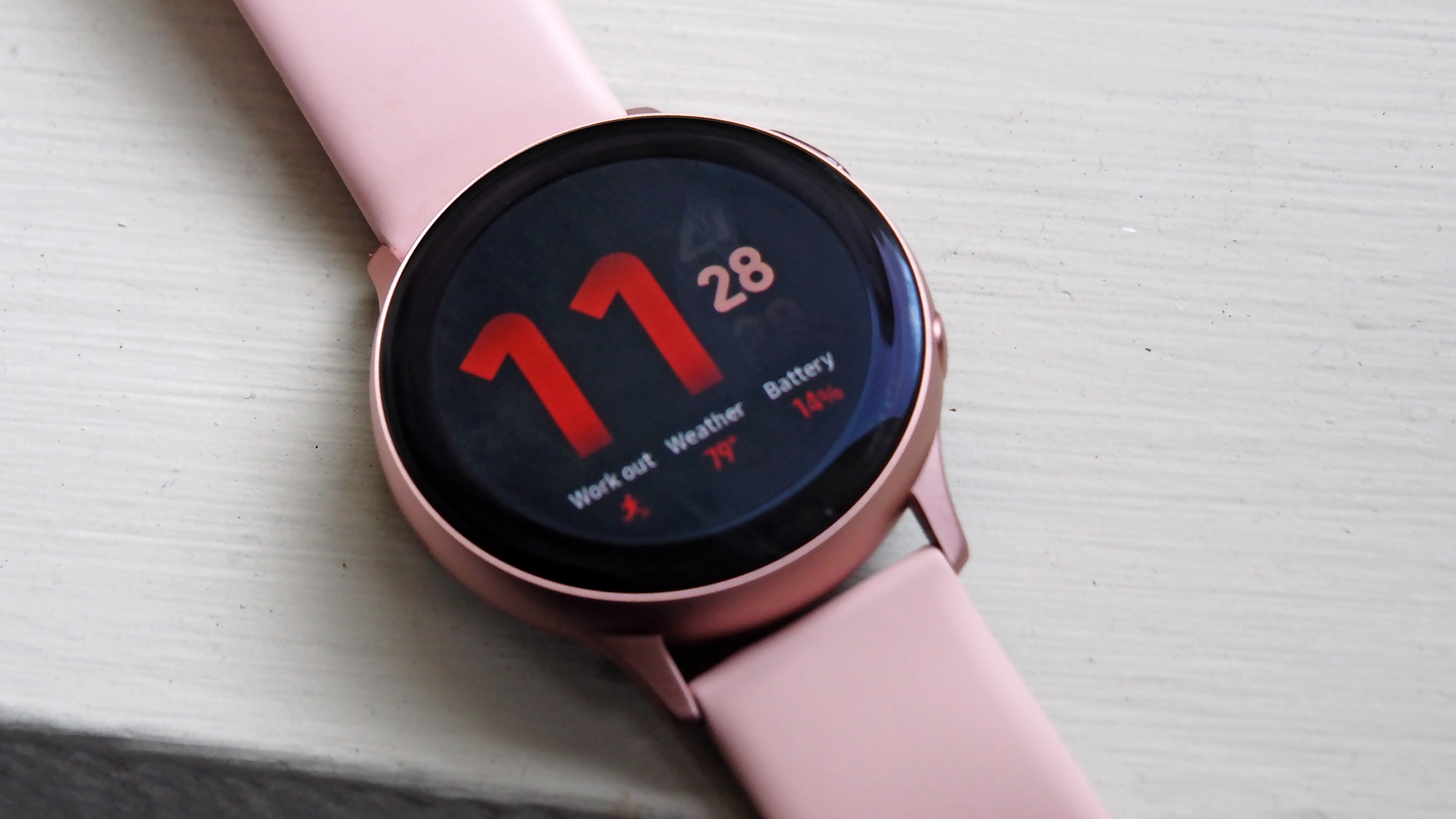
I had bought the Galaxy Watch Active before I was pregnant to track miles on the trail and laps in the pool. I liked that its 40mm watch face felt more comfortable on my wrists than any of the gargantuan Wear OS smartwatches. But as life changed, so did its intended purpose. The data I acquired through it and the Samsung Health app helped me see better what was happening internally and how to steer myself back on the right track. This experience has made me a big believer in aggregating data on our bodies to help lead healthier lives.
Before I was pregnant, I was already suffering from an anxiety disorder, so I was familiar with the physical manifestations of an oncoming attack. Rapid changes in blood pressure tend to feel the same way — or at least, that's how I described them to my doctor.
That morning on the train, the Galaxy Watch Active's heart-rate measurement confirmed what I was feeling. I sat down on a bench in the cold morning air and practiced the same breathing exercises I'd learned to help calm myself from an anxiety attack. For 20 minutes, I watched as my heart rate returned to its average resting rate and waited for the graph on my Samsung Galaxy Watch Active to normalize before getting back en route.
How the Galaxy Watch Active helped me at the doctor's office
In this day and age, we're a bit freaked out about having so much personal data filed away, especially as Google starts folding in Fitbit's technology, and Apple moves forward with its plans to expand its health division.
Sign up to get the BEST of Tom's Guide direct to your inbox.
Get instant access to breaking news, the hottest reviews, great deals and helpful tips.
However, having that information handy when I checked in with my doctor proved imperative. Throughout the past nine months, I've consistently tracked spikes in my heart rate and related that to the events of the day. The watch vouched for me on whether I'd slept plenty or drank enough water. I cross-referenced my BPM numbers with whether I was stressed and anxious, or simply on my feet too much. The watch could also tell when I'd had too much caffeine, and so I began tapering off my consumption to help bring down my heart rate and avoid dizzy spells.
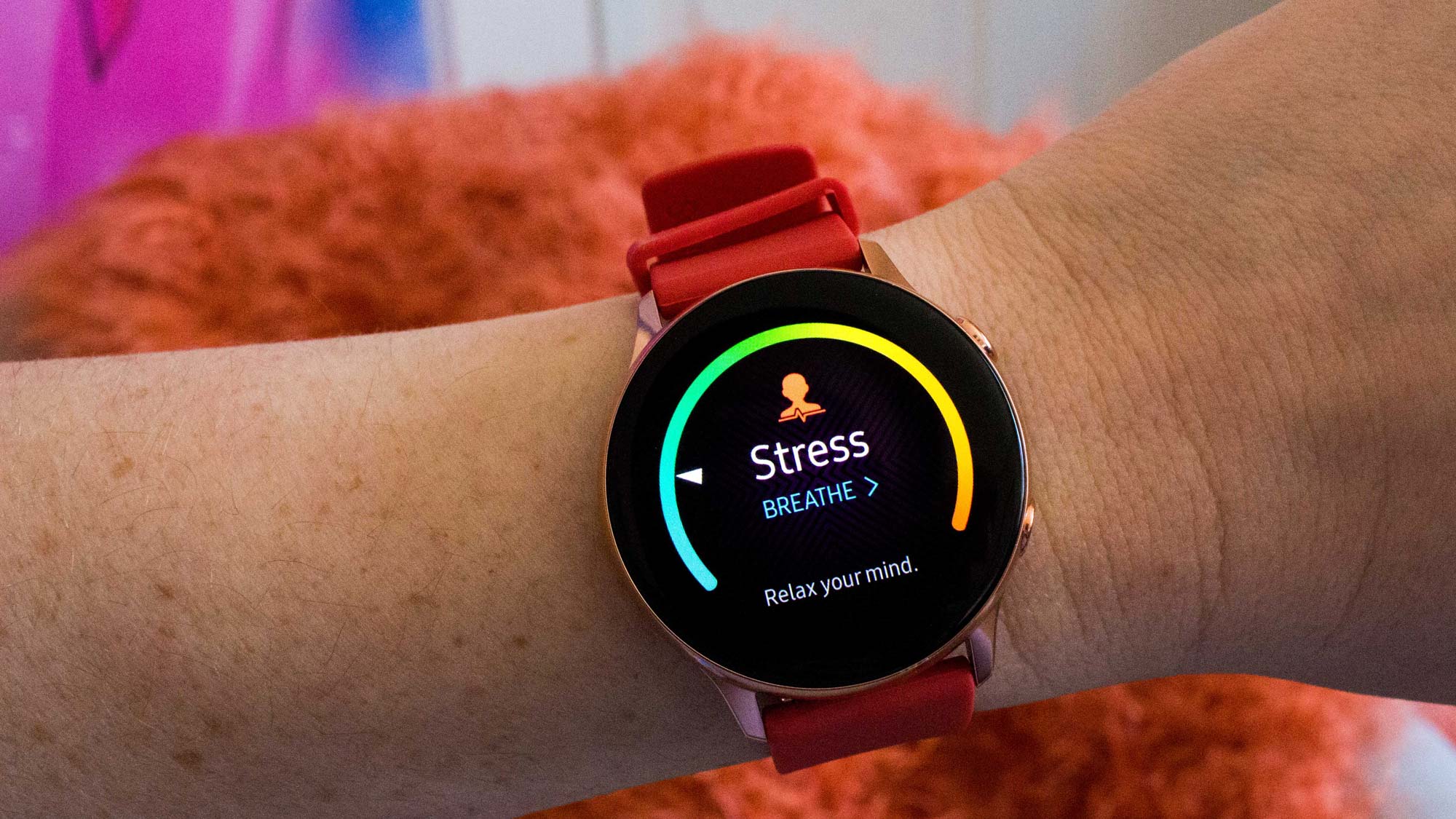
Although the Galaxy Watch Active isn't the shining standard for what smartwatches should be — its Tizen-based app ecosystem is severely limited compared with Google Play and WatchOS — it certainly convinced me that wearables could help monitor what's happening inside my "meat suit," as one of my favorite yoga teachers calls it.
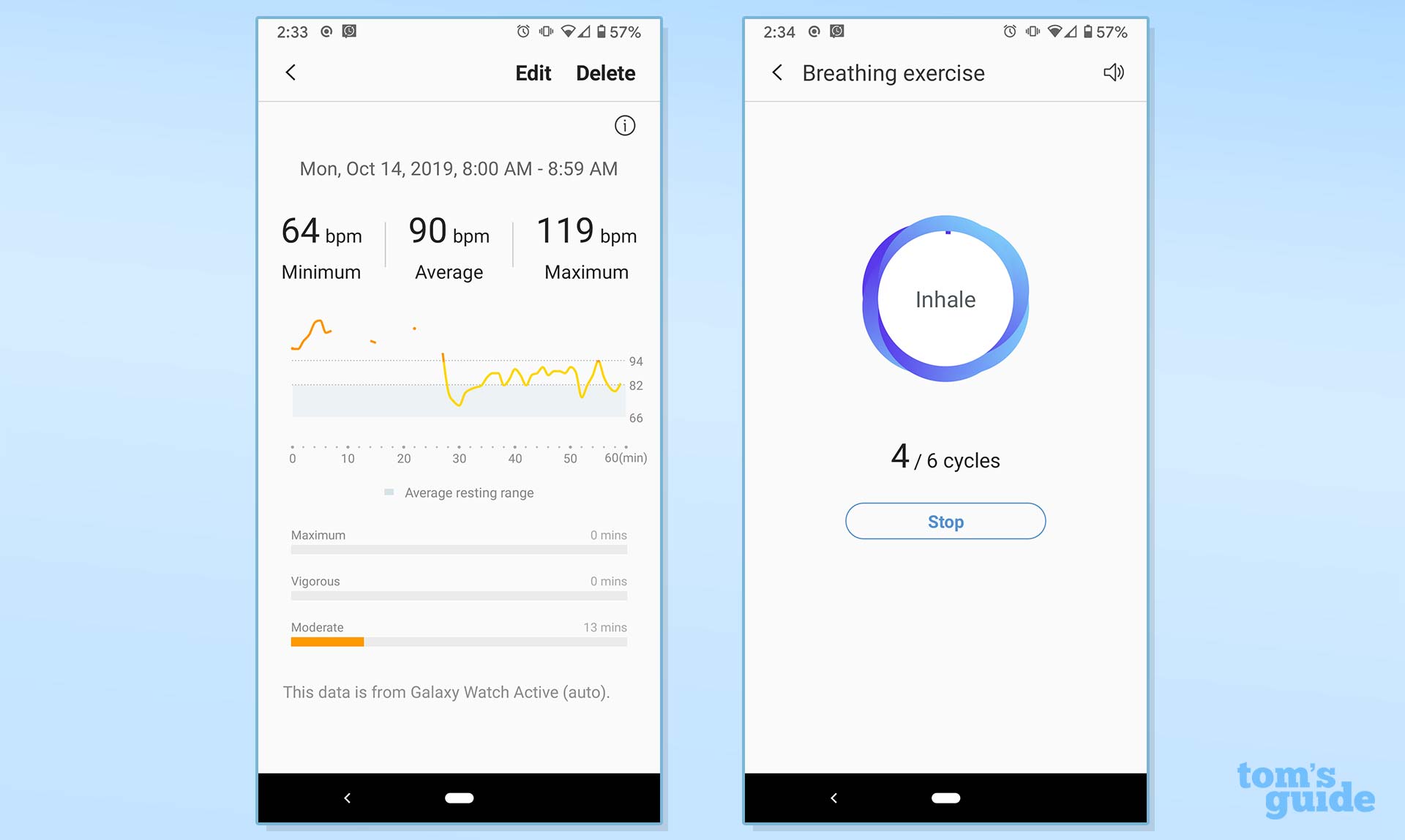
In these last few weeks of pregnancy, I learned that anemia was contributing to my low blood pressure. My doctor has since prescribed iron supplements, and they've helped somewhat, but I still experience bouts of vertigo and lightheadedness when I'm on my feet for too long or overwhelmed with tasks.
As my doctor explained, my body is spending all of its energy incubating the little bun in the oven. The smartwatch helps so that I don't overexert myself; it reminds me to practice my breathing exercises when I feel anxious or short of breath because of the little body that's continuously pressing up against my respiratory system.
Smartwatches as early-warning devices
Most smartwatches offer heart-rate monitoring, but in recent years, the devices have expanded their abilities to more general health-related functions. The Apple Watch has been credited with saving people's lives, thanks to its FDA-approved electrocardiogram and its fall sensors.
Samsung's kicker with the Galaxy Watch Active is that it's also capable of monitoring stress levels based on blood pressure. Since I bought the Galaxy Watch Active, the Galaxy Watch Active 2 came to market and brought with it optional LTE, and improved sensors, like a more accurate heart-rate monitor. It also includes an electrocardiogram (ECG) sensor to help monitor irregular heartbeats, though Samsung is waiting on FDA approval for that particular functionality.
According to The Verge, Samsung worked with a psychopathologist at the University of California, San Francisco, to help develop its blood-pressure-tracking ability using a technique called photoplethysmography (PPG). It's an optical sensor that reflects light onto the skin to measure blood volume. The efficacy of Samsung's patented monitoring remains up for debate, as the company has yet to receive official clearance from the FDA. I've managed to find quite a bit of utility in the stress-tracking feature, however, especially with knowing when I'm pushing myself too hard.
Room for improvement
I do wish the Galaxy Watch Active and its companion app did more to address the fact that my pregnant body was in need of guidance. At the very least, it would know that I'm temporarily carrying extra weight rather than relying on me to manually input it. And maybe it would be a bit more understanding about why I'm getting up constantly in the middle of the night.
It would also be nice to have pregnancy-tracking abilities baked into Samsung Health rather than relying on a third-party app that doesn't sync with the real-time results I get through the smartwatch.
What my smartwatch helped me realize that day I almost passed out was that my body required a different kind of self-care to accommodate the little person growing inside of me. I thought that locking my knees while standing on the train, coupled with the lack of sleep the night before, had contributed to the episode. But after studying the Watch Active's measurements of my fluctuating heart rate, my doctor confirmed it was due to low blood pressure. It's a common occurrence in pregnant bodies, and without the smartwatch data, I wouldn't have surmised that was the case.
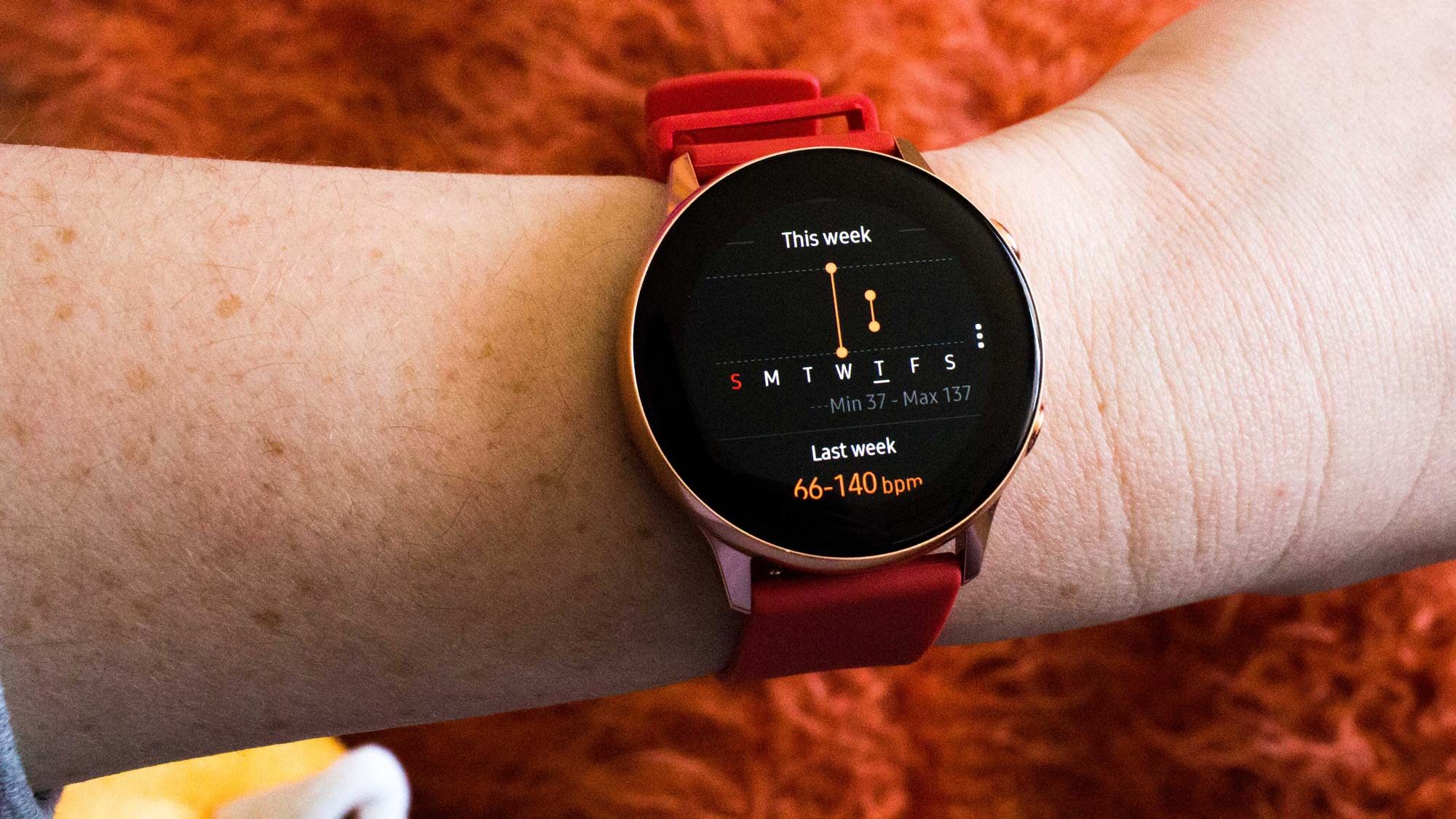
It doesn't have to stop with pregnancy. Tracking steps and sleep is undoubtedly helpful, but as I age and enter different stages of life, it'd be nice to have a smartwatch that could lead me to think about my body in a way I didn't before I make it to the doctor. Imagine if the Galaxy Watch Active knew I was about to be postpartum and tuned its tracking abilities to capture those symptoms and alert me to any issues. The smartwatch helped me make some necessary life changes when I saw my heart rate spiking, but when they finally become predictive, rather than reactive, is when smartwatches will really be lifesavers.
Florence Ion has worked for Ars Technica, PC World, and Android Central, before freelancing for several tech publications, including Tom's Guide. She's currently a staff writer at Gizmodo, and you can watch her as the host of All About Android on the This Week in Tech network.
